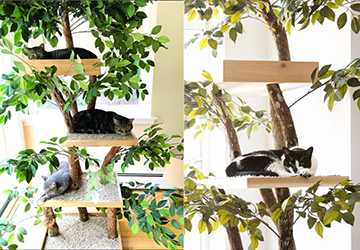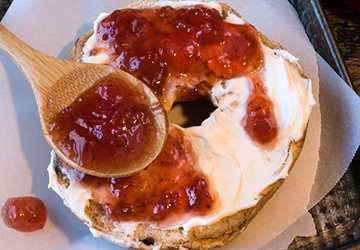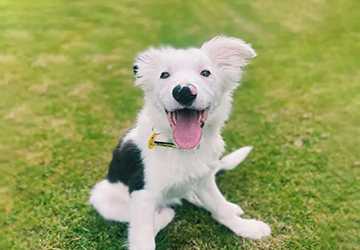deliciousfood
Embarking on the path of pet guardianship is an exhilarating endeavour, especially when it involves the dynamic and engaging world of avian companions. For neophytes to aviculture, selecting the optimal species is crucial for fostering a cordial relationship between the pet and its guardian. Best pet birds for beginners should be amicable, require minimal upkeep, and be adaptable to the domestic setting.
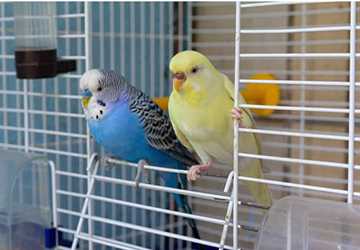
Best Pet Birds for Beginners
Certain avian species stand out as quintessential first pets, owing to their uncomplicated care protocols and genial temperaments. Here are some exemplary choices for starter birds for new owners:
Budgerigars
Frequently known as "budgies," these miniature, friendly birds are the epitome of an ideal companion due to their playful nature and proficiency in mimicking human speech. They thrive on interaction, making them perfect for families ready to engage with them frequently.
Cockatiels
Cockatiels are another exemplary choice for the best pet birds for beginners. They are noted for their iconic crests and charming demeanours. They possess a relative calmness and can emulate various sounds and words. Their straightforward maintenance needs make them an excellent option for first-time bird owners.
Canary
Canaries are an exceptional choice for new owners who favour a less interactive but still engaging pet. Renowned for their melodious chirping and striking plumage, the Canaries thrive with minimal interaction, which is ideal for owners who prefer a pet with more independent traits.
Finch
Finches, with their compact size and exuberant energy, are easy-to-care-for pet birds. These gregarious creatures generally prefer their species' company; thus, keeping them in pairs or small flocks is advisable. Their care regimen is relatively straightforward, requiring regular habitat maintenance and feeding but limited space.
Essential Care Insights for Novice Avian Enthusiasts
Starter birds for new owners necessitate an understanding that each species possesses unique care demands. Here are some indispensable care insights for burgeoning bird enthusiasts:
- Space: It is imperative to ensure sufficient space for a cage that allows your bird ample freedom to fly and explore.
- Diet: A nutrient-rich diet tailored to your bird's species-specific requirements is critical for vitality.
- Social Interaction: Most birds are inherently social beings and require consistent interaction with their owners or avian peers to maintain their happiness.
- Healthcare: Regular evaluations with a veterinarian skilled in avian care are crucial to ensure the health and well-being of your feathered friend.
The Enchantment of Avian Companionship
Birds are splendid companions for several reasons. They often forge profound bonds with their owners, provide continuous entertainment, and contribute to stress reduction. Selecting the best pet birds for beginners ensures a seamless introduction to pet ownership with a companion compatible with your lifestyle.
Safe Housing and Handling
Cage Placement and Safety
The location of your bird's cage can significantly affect its comfort and stress levels. An ideal location is in a quiet living room corner where there is family activity but no direct sunlight or drafts. Ensure the cage materials are non-toxic and no small parts can be ingested or cause injury.
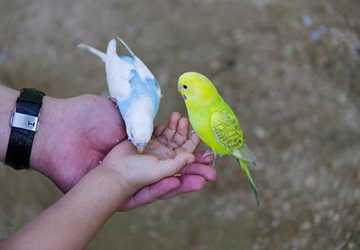
Handling and Socialization
Proper handling techniques are essential to ensure the bird's and owner's safety and comfort. Birds should be handled regularly from a young age to ensure they are comfortable with human interaction, but always with gentle and respectful approaches that build trust rather than fear.
Advanced Considerations for Optimal Avian Welfare
Augmenting Environmental Enrichment for Avian Prosperity
Crafting a vibrant and engaging habitat bolsters your bird's psychological resilience. Integrating an assortment of perches crafted from diverse materials and dimensions is crucial for promoting optimal podiatric health and alleviating boredom. Additionally, toys designed to foster foraging behaviours are indispensable for cerebral engagement and can sustain your bird's amusement for prolonged periods.
Acoustic and Luminous Considerations
As diurnal beings, birds are active during daylight hours and restive at night. Precise illumination is imperative to emulate their natural environs, which aids in maintaining their circadian rhythms. Concurrently, auditory considerations are crucial; birds are acutely sensitive to sonic disturbances, and maintaining a tranquil and consistent soundscape is vital for mitigating stress.
Enhancing Social Dynamics and Interactions
In contrast to solitary pets, avian species predominantly thrive on social interactions. This segment delves into practical strategies for integrating social dynamics into your bird's daily life.
The Crucial Role of Social Connectivity
Birds are intrinsically gregarious, and many species naturally congregate in flocks. This inherent sociability extends to domesticated birds, necessitating regular, tender interactions to cultivate a robust bond with your avian and enhance its emotional health.
Protocols for Integrating New Avian Members
Contemplating the addition of new birds to your avian family requires a systematic approach to ensure compatibility and avert hostilities. Isolating newcomers to preempt disease transmission and facilitating initial interactions in a neutral setting is paramount for observing their interrelations.
Sustaining Health and Promoting Longevity
The longevity and vitality of your bird transcend mere daily maintenance. Here are advanced insights for nurturing your bird’s health.
Consistent Avian Medical Consultations
Forge a proactive partnership with a veterinarian specializing in avian medicine early in your bird's life. Routine health evaluations can proactively mitigate health complications and furnish tailored care strategies specific to your bird’s breed.
Indicators of Ailment Requiring Vigilance
Avian species typically conceal indications of malaise until they are gravely ill. It's imperative to monitor for signs such as alterations in dietary intake, listlessness, dishevelled plumage, or irregular excretions. Immediate medical intervention is often decisive.
Conclusion
Venturing into bird ownership can be a fulfilling and delightful pursuit. Choosing one of the best pet birds for beginners will pave the way for a more straightforward adaptation to life with a feathered friend. Birds such as Budgerigars, Cockatiels, Canaries, and Finches bring vibrancy and joy into your life and become valued family members. Attentive care to their specialized needs is the cornerstone of a healthy and joyful existence. Whether drawn to the vibrant and communicative nature of a Budgie or the tranquil allure of a Canary, there exists a perfect bird to commence your avian adventure.

